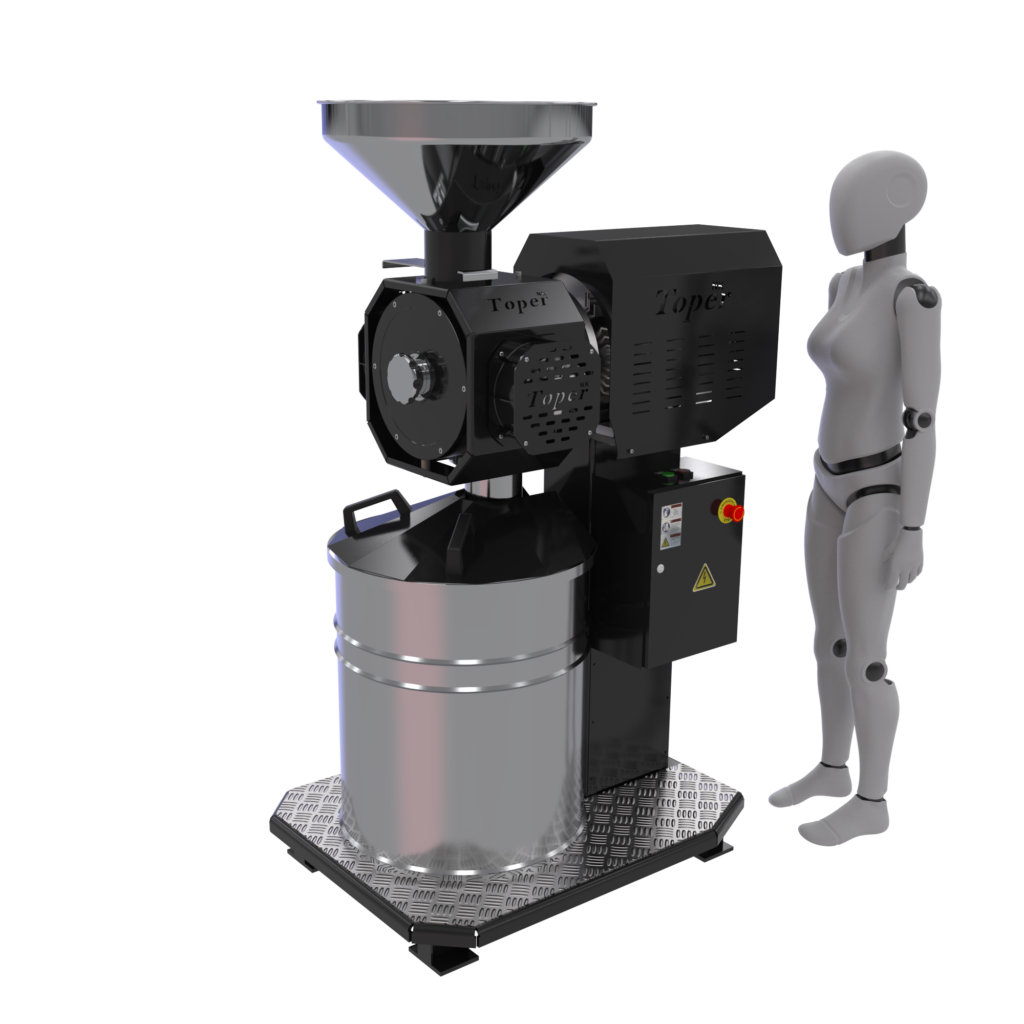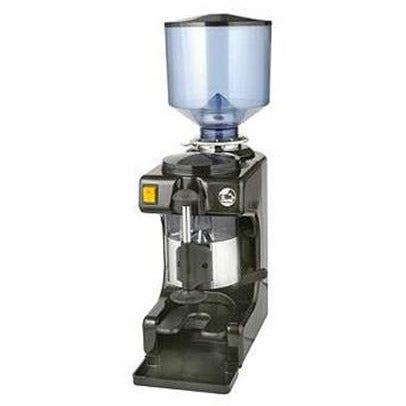Industrial Coffee Grinder: Price, Durability, and Performance Compared
Industrial Coffee Grinder: Price, Durability, and Performance Compared
Blog Article
Exactly How to Choose the Perfect Industrial Coffee Mill for Your Service
Selecting the perfect commercial coffee grinder for your business is a complex decision that calls for cautious consideration of numerous crucial factors. It is necessary to examine your specific grinding demands, including the quantity of coffee processed and the desired work uniformity, as these elements directly influence flavor and consumer contentment. Furthermore, recognizing the different kinds of grinders readily available can considerably affect your operational performance. As you navigate these factors to consider, one need to also evaluate the implications of spending plan and maintenance. What other variables could make or break your option?
Assess Your Grinding Needs
When choosing a commercial coffee mill, one must first evaluate their grinding requirements to ensure optimal performance and uniformity. This first evaluation involves comprehending the quantity of coffee to be refined daily, along with the desired grind size for different brewing techniques. A high-capacity grinder may be necessary for companies offering big amounts of coffee, while smaller operations may discover a much more small design adequate.
Moreover, it is crucial to take into consideration the kinds of coffee beans being made use of, as various beans may need particular grinding techniques to achieve the best taste account. As an example, oily beans may require a grinder designed to handle such attributes without overheating or clumping.
Specialized coffee services commonly require specific work sizes to improve removal and taste, making it important to choose a mill that can deliver uniform outcomes. Evaluating the offered room and electric requirements will aid in selecting a grinder that fits effortlessly right into your operational process.
Understand Mill Kind
Understanding the various kinds of commercial coffee mills is important for making an educated choice that fulfills particular functional requirements. There are largely two categories of grinders: blade grinders and burr mills.
Blade mills utilize spinning blades to chop the coffee beans, leading to an irregular work size - Industrial Coffee Grinder. While they might be extra budget-friendly, they are frequently not appropriate for industrial applications where accuracy is important
On the various other hand, burr grinders supply a more consistent work by crushing the beans between 2 surface areas. They can be further categorized right into level burr and cone-shaped burr mills. Apartment burr grinders offer a constant work size and are commonly favored for espresso prep work, while conelike burr grinders are flexible and can handle a variety of brew techniques, from coffee to French press.
When selecting a grinder, think about the particular needs of your company, consisting of desired work consistency, production quantity, and the sorts of coffee beverages you intend to use - Industrial Coffee Grinder. Each mill kind has its advantages and restrictions, so comprehending these subtleties allows notified decision-making that lines up with operational objectives
Evaluate Work Dimension Consistency
Attaining work size uniformity is essential for generating high-grade coffee, as variations in particle dimension can substantially impact removal and flavor. When selecting a commercial coffee grinder, it is critical to examine how well the equipment preserves harmony in grind dimension across different sets. Inconsistent work dimensions can cause uneven removal, find more info resulting in a mug that may taste weak or overly bitter.
To analyze grind dimension consistency, consider mills with features such as flexible grind setups and top quality burrs. Burr mills, particularly, master generating uniform fragment sizes contrasted to blade grinders. The product and shape of the burrs play a crucial role, with stainless-steel and ceramic options offering durability and accuracy.

Think About Manufacturing Ability
In the fast-paced world of coffee production, taking into consideration manufacturing ability is extremely important for services intending to fulfill demand without giving up top quality. The manufacturing ability of a commercial coffee grinder directly affects a company's ability to fulfill orders efficiently, manage stock, and react to rising and fall market fads.
When evaluating manufacturing capability, it is vital to evaluate the grinder's outcome rate, commonly determined in extra pounds per hour. This dimension needs to straighten with your service's forecasted sales volume and growth targets. A café with a high turnover might call for a mill that can refine several hundred pounds daily, while a smaller sized procedure may be enough with a lower ability model.
Additionally, think about the sort of coffee being processed. Various beans and blends might affect grinding rate and effectiveness, necessitating a mill efficient in handling varied manufacturing demands. It's also worth factoring in the grinder's ability to keep constant high quality under high result conditions, as any type of variations can affect the end product.
Inevitably, choosing a mill that matches your service's production capability will ensure you remain responsive and affordable to customer assumptions.

Budget and Upkeep Aspects
When assessing the ideal industrial coffee budget plan, upkeep and mill factors play a considerable duty in the general decision-making procedure,. A first investment in a high-grade grinder can produce lasting benefits, however it's essential to establish a clear spending plan that aligns with your company's operational requirements. Consider both the acquisition rate and prospective operational expenses, such as energy usage and substitute parts.
Industrial coffee mills require routine upkeep to guarantee optimal efficiency and long life. Examine the producer's recommendations for maintenance, consisting of cleansing schedules and parts substitute, as these will affect lasting functional costs.

Spending in a grinder that is durable yet investigate this site very easy to maintain can conserve money with time. While lower-priced choices may be appealing, they may sustain higher upkeep costs and minimized efficiency. Inevitably, balancing first costs with long-lasting maintenance and operational performance will guide you to the ideal choice for your organization's coffee grinding requirements.
Conclusion
Picking the perfect industrial coffee mill requires a comprehensive examination of grinding needs, grinder kinds, grind size uniformity, manufacturing capacity, and monetary considerations. A well-chosen grinder not just enhances the top quality of the coffee generated however additionally contributes to the total success and profitability of the business.
Specialized coffee companies usually demand precise work sizes to improve removal and taste, making it important to pick a grinder that can provide consistent results. Apartment burr more grinders provide a regular work dimension and are generally favored for espresso preparation, while conical burr grinders are flexible and can handle a range of brew approaches, from coffee to French press.
When choosing an industrial coffee grinder, it is crucial to review just how well the maker maintains harmony in work size throughout various batches. Burr mills, in specific, stand out in producing consistent bit sizes contrasted to blade mills.Choosing the suitable industrial coffee grinder necessitates a detailed examination of grinding requirements, mill kinds, grind size uniformity, production ability, and monetary considerations.
Report this page